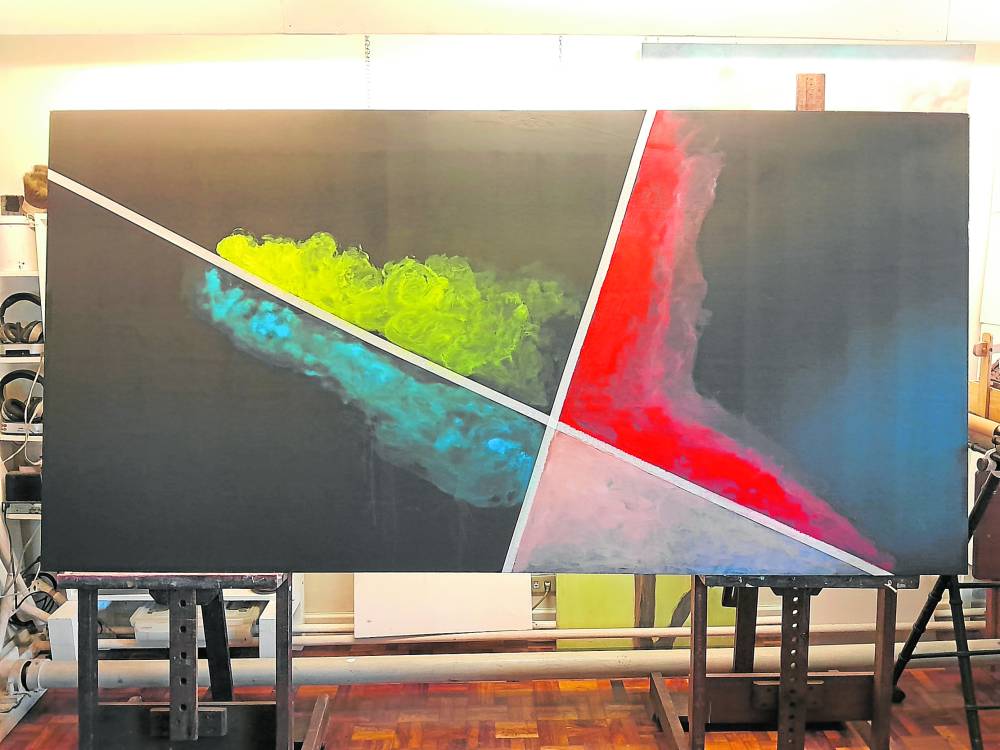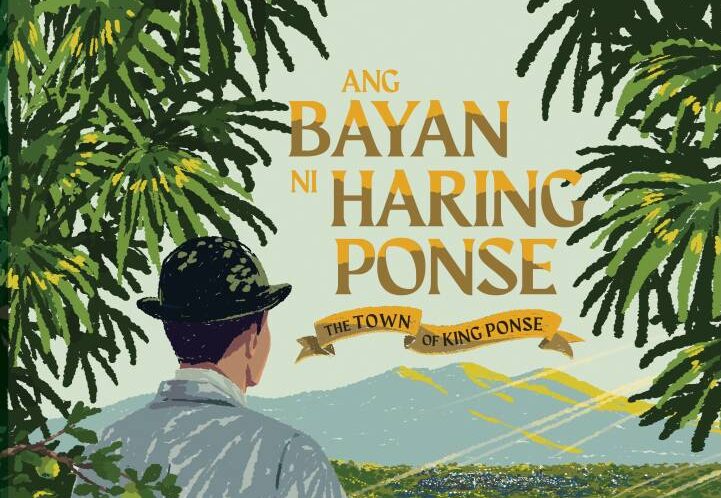
A discarded face mask loses its purpose after its “boss” tosses it into the bin. It transforms into a small anthropomorphic figure and searches for its human, only to find its previous owner in the company of a sturdy new mask. The poor, blue disposable mask wanders aimlessly until it finds company.
“Maski Papano,” directed by Glenn Barit and Che Tagyamon, was among the many short films in this year’s Cinemalaya whose stories focused on the novel coronavirus—a topic that is nigh impossible to ignore due to its immense impact on society and individuals.
“As we open our most anticipated independent film festival, there is a lot of sadness—sadness as we mourn the passing of friends, colleagues; sadness because we miss the live camaraderie in exchange after we view the films at the Cultural Center [of the Philippines], the satellite movie theaters; sadness at our lack of mobility that makes us worry about the future,” Cinemalaya Foundation Inc. president Laurice Guillen said during the opening of the festival.

The 17th Cinemalaya is a showcase of independent films, of emerging directors and storytellers, of outstanding filmmakers, but the pandemic still looms large amid the celebration. The opening day, which kicked off on Aug. 6, was launched coincidentally on the first day that Metro Manila and nearby provinces reverted to lockdown anew. Its movies are once again available through streaming platforms, making the festival viewing experience an altogether individual affair.
But while the audiences of this year’s Cinemalaya are cooped up in their homes, watching behind a small screen and scanning through dozens of titles available for streaming, they will find that many of the short films in this year’s competition lineup tell a collective experience from the most surprising of perspectives.
Pandemic stories
Stories of the pandemic, for one, came from varying standpoints: a grandmother, a man stranded on a small planet, local carinderia owners and a stressed-out kasambahay.
“Maski Papano” took on a rather heavy topic, but it provided a quirky spin that brought laughs without diminishing the very real effects of the pandemic. In a matter of five minutes, the prop-heavy short film tackled the loneliness of isolation and the sudden disappearance of job security.

“An Sadit na Planeta (The Little Planet)” also revolved around the shared experience of isolation.
Arjan wakes up and finds himself on a planet so small he can see the start and the end. The 12-minute film in Bicolano is shot entirely using a 360-degree camera.
“During this pandemic, we felt the shrinking of our world. We were not able to do a lot of things, we could not step outside. Ironically, our world shrunk at the time when our problems became bigger, we became more worried,” director Arjanmar Rebeta said in a video uploaded on his Facebook page.
The film was among the big winners in the awarding ceremony on Thursday, taking home the Audience Choice Award, Special Jury Award and Netpac Jury Award.
The all-encompassing effects of the pandemic were also explored in “Namnama en Lolang (Grandmother’s Hope)” and “Ate O.G.” The five-minute film “Namnama en Lolang,” shot using a smartphone, “preserves the memory of our experiences, the pressing issues and the hurdles we need to face during this health crisis,” according to director Jonnie Lyn Dasalla. The film is a reminder of the lives lost during the pandemic, and puts a face to the families left behind by the people who succumbed to the disease.

“Ate O.G.” tackles the emotional and mental aspects of the crisis through the life of a trusty kasambahay stuck in quarantine with two rather spoiled young adults. Ate, as the kasambahay is referred to, turns to gardening (like many people did at the start of quarantine), while attending to the needs of her employers. When she becomes increasingly distracted, anxious and stressed, she turns to an all-natural “medication.”
Beyond the emotional toll brought by the novel coronavirus, director Kevin Mayuga also explores class divide, something that has become even more evident during the lockdown.
The documentary “Ang mga Nawalang Pag-asa at Panlasa,” meanwhile, focused on the mom-and-pop shops in Ilocos that offer the best dishes from the region. Directors Kevin Jay Ayson and Mark Moneda also focused on how these small businesses—like many restaurants around the world—struggled during the pandemic.

Aside from the health crisis, the films in the main competition explored the many aspects and complexities of being Filipino.
“Beauty Queen,” which was awarded Best Short Film for “presenting to today’s generation a shining paragon of beauty and bravery,” tells the story of Filipino hero Remedios “Kumander Liwayway” Gomez.
The historical drama starts in 1940 Pampanga, when Gomez is crowned in a beauty pageant. But Gomez sets aside her crown to join the guerrilla movement in World War II—breaking gender stereotypes in more ways than one.
“[It’s] important for people to know more about Kumander Liwayway, and this is a step in the right direction,” director Myra Aquino told the media after the awarding ceremony.

The FiIipino filmmaker who was raised in Guam said that the minimal exposure to inspiring women led her to tell stories of Filipino women.
“Beauty Queen” was filmed before the coronavirus hit the country, but the postproduction was done remotely during the lockdown. She added that it would have been difficult to shoot amid a raging pandemic.
Taboo awakening
Another short film that earned the approval of judges Sigrid Andrea Bernardo, Jeffrey Jeturian and Aruna Vasudev is “Kids on Fire.” This dark comedy is about the sexual awakening of a prepubescent boy during a religious summer camp.
“Kids on Fire” was awarded Best Screenplay and Best Direction. Director Kyle Nieva said that his team took a risk of making a coming-of-age film that discusses a very sensitive topic that is normally taboo in a religious country like the Philippines. But he added that it’s important to talk about sex, especially with the rising number of teenage pregnancy and sexually transmitted diseases.

Another film that explores faith and sexuality is “Ang Pagdadalaga ni Lola Mayumi.” The 20-minute drama starts with Lola Mayumi, the town’s pious old maid, checking into a motel for her first brush with intimacy.
Young director Shiri de Leon drew inspiration from her experience of growing up Filipino, where it is often taboo to talk about sex.
Life and religion are also at the heart of “Kawatan sa Salog,” a mystery/drama about a poor boy who drowns and finds himself in the afterlife. Director Alphie Velasco said that the film is based on his visits to his mother’s hometown, Caramoan, and the days spent with his late grandmother.
Coming-of-age film “Looking for Rafflesias and Other Fleeting Things,” meanwhile, tells the story of Gubat, a tikbalang that transforms into a teenage boy. Gubat retreats to the mountains where he meets an American botanist searching for the titular parasitic flower. In the director’s note, filmmaker James Allen Fajardo said that the film “attempts to deconstruct the representation of tikbalang as often depicted as dangerous creatures in films, literature and other forms.”

Many of the films in this year’s competition were visually pleasing, but “The Dust in Your Place” finds strength in the art of conversation. The 20-minute drama is about a comic strip artist who breaks down why her writer’s relationships keep failing. The film is directed by David Olson.
The two suspense films in the main competition, meanwhile, were both gripping and emotionally taxing—in a good way.
“Crossing,” directed by Marc Misa, is about a security guard who, out of desperation, attempts to declare a holdup in a passenger bus. When he finally wills himself to carry out the criminal act, two other men start robbing the passengers. The film was more than just crossing the lines between good and evil. Misa said in the director’s notes that he hopes his viewers would look into the motivations behind people’s actions. “The result of failing to recognize the complexities of human beings is often stereotyping, discrimination and prejudice,” he said.

“Out of Body,” directed by Enrico Po, is about aspiring model Elle who finds herself on the set of a macabre commercial shoot. She’s kept in the dark on sudden changes to the storyboard, forced to wear lingerie and in the process systemically loses her agency in the industry. The short film draws the viewer in as Elle is pressured into uncomfortable situations by people who all claim to be on her side.
Extraordinary
Producing a film during a global health crisis, while public health measures are enforced and situations are uncertain, is extraordinary as it is, said veteran director Jose Javier Reyes.
“To all the finalists of [the 17th] Cinemalaya, congratulations! Congratulations in the sense that it was quite a feat to come out with these films considering the very delicate and volatile conditions of filmmaking at this time,” the head of competition said.

The 17th Cinemalaya is available for streaming until Sept. 5, for a total of four weeks—its longest run yet. Around 100 titles are available on streaming platforms ktx.ph and Vimeo.
Aside from the main competition, viewers also have the chance to see critically acclaimed films, like “ECQ Diary (Bawal Lumabas),” “Lockdown,” “Kintsugi” and “Don Filipo.” The 2021 documentary “Tao Po,” by Mae Paner, and the 2020 drama film, “He Who Is Without Sin,” by Jason Paul Laxamana, were among the Premieres in this year’s festival.Visions of Asia, which features outstanding Asian films like “Mosul My Home” and “Bandar Band” are also available for streaming.
True to its theme of “Navigating Currents,” the film festival introduced this year Cinemalaya Institute—a film lab that will prepare semifinalists before they shoot their films.

“The film lab and the training programs are a carefully thought-out response at this time to the new trends, new prevailing conditions and new professional demands on our filmmakers. We believe and sincerely hope that they will be of significant help when our new filmmakers begin to film in the ‘new normal,’” Guillen said during the start of the festivities. INQ













































